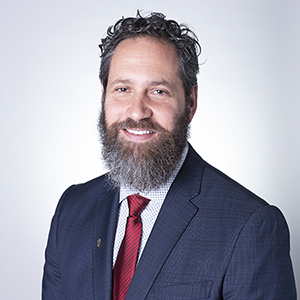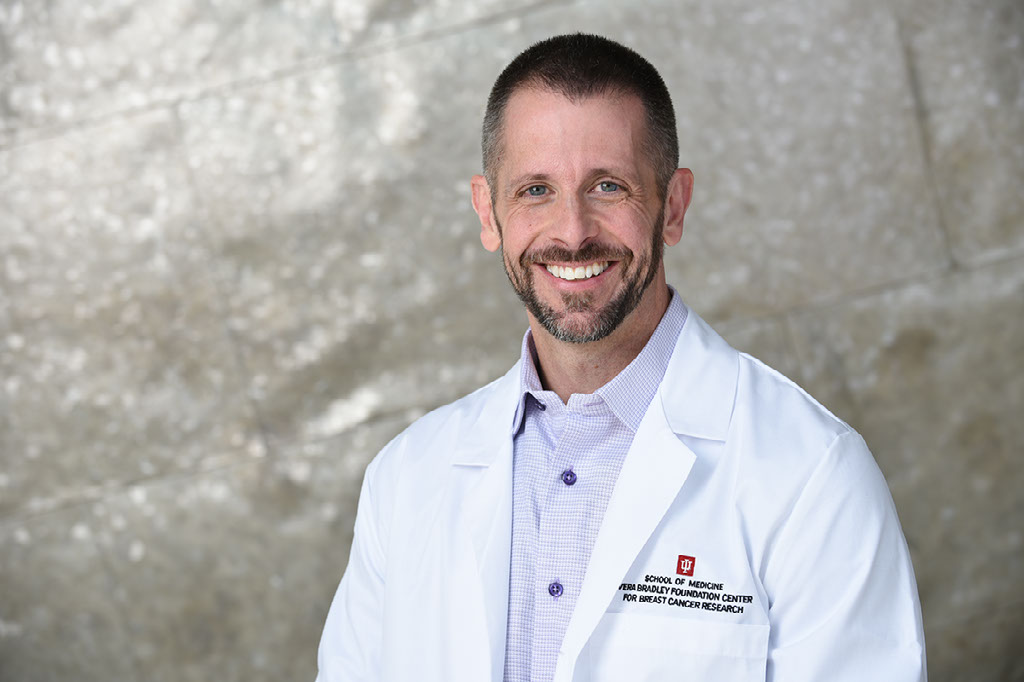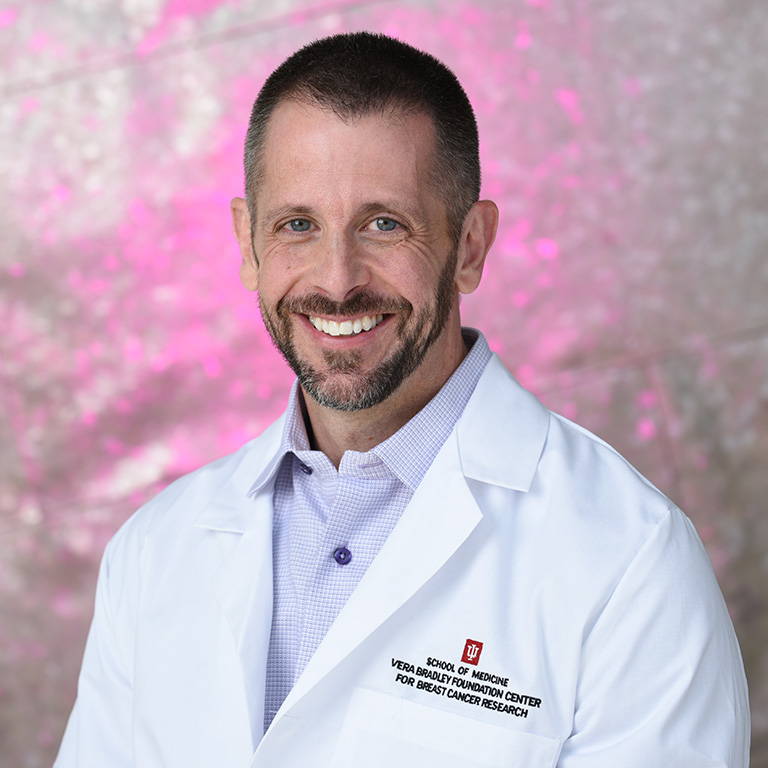Target: Taxane and Taxane-Induced Neuropathy
Bryan P. Schneider, MD, is a medical oncologist with clinical expertise in breast cancer and precision oncology and has aligned research interests in therapeutic individualization and how the burden of cancer affects communities differently.
He uncovered a higher likelihood of therapy-associated toxicity for patients of African descent (using ancestral classification) and found that germline genetic variants might further refine risk for one of the most clinically important toxicities, taxane-induced peripheral neuropathy.
Taxane-based chemotherapies are the primary curative therapy for breast cancer, but they can lead to taxane-induced peripheral neuropathy (TIPN). Neuropathy symptoms include numbness, tingling and pain in the hands and feet, which can become debilitating and impact the ability to deliver planned doses of curative chemotherapy.
This work led to the development the clinical study EAZ171 (PI Schneider), one of the first NCI-cooperative group trials to focus accrual on patients of African descent with breast cancer with the goal of overcoming the burden of cancer by personalizing therapy in the curative setting. EAZ171 demonstrated personalization of therapy minimizes toxicity and dose reductions (Schneider et al, JCO 2024).
Study Details















